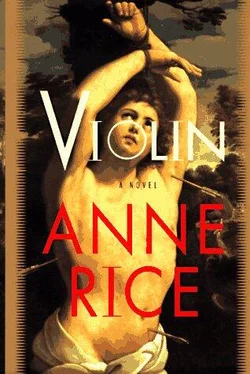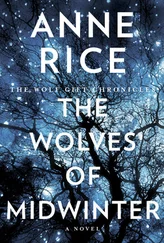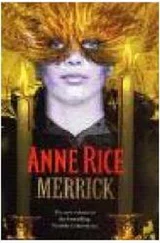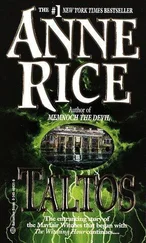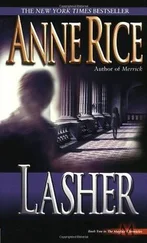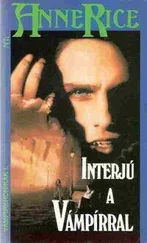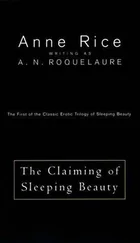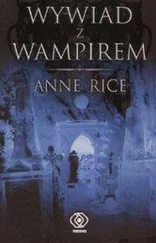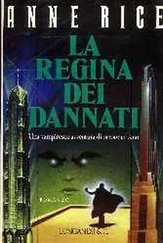Violin
Anne Rice
For Annell Blanchard, M.D.
For Rosario Tafaro
For Karen
and as always and forever
For Stan and Christipher and Michele Rice,
John Preston,
And
Victoria Wilson
And In tribute to the talent of Issac Stern
and Leila Josefowicz
What I seek to do here perhaps cannot be done in words. Perhaps it can only be done in music. I want to try to do it in words. I want to give to the tale the architecture which only narrative can provide -the beginning, the middle and the end-the charged unfolding events in phrases faithfully reflecting their impact upon the writer. You should not need to know the composers I mention often in these pages: Beethoven, Mozart, Tchaikovsky-the wild strummings of the bluegrass fiddlers or the eerie music of Gaelic violins. My words should impart the very essence of the sound to you.
If not, then there is something here which cannot be really written. But since it's the story in me, the story I am compelled to unfold-life, my tragedy, my triumph and its price-I have no choice but to attempt this record.
As we begin, don't seek to link the past events of my life in one coherent chain like Rosary beads. I have not done so. The scenes come forth in bursts and disorder, as beads tossed helter-skelter to the light. And were they strung together, to make a Rosary-and my years are the very same as the beads of the Rosary-fifty-four-my past would not make a set of mysteries, not the Sorrowful, nor the Joyful or the Glorious. No crucifix at the end redeems those fifty-four years. I give you the flashing moments that matter here.
See me, if you will, not as an old woman. Fifty-four today is nothing. Picture me if you must as five feet one inch tall, plump, with a shapeless torso that has been the bane of my adult life, but with a girlish face and free dark hair, thick and long, and slender wrists and ankles. Fat has not changed the facial expression I had when I was twenty.
When I cover myself in soft flowing clothes, I seem a small bell-shaped young woman.
My face was a kindness on the part of God, but not remarkably so. It is typically Irish-German, square, and my eyes are large and brown, and my hair, cut blunt just above my eyebrows-bangs, if you will-disguises my worst feature, a low forehead. "Such a pretty face" they say of dumpy women like me. My bones are just visible enough through the flesh to catch the light in flattering ways. My features are insignificant. If I catch the eye of the passerby, it's on account of an acuity visible in my gaze, an honed and nourished intelligence, and because when I smile, I look truly young, just for that instant.
It's no uncommon thing to be so young at fifty-four in this era, but I mark it here, because when I was a child, a person who had lived over half a century was old, and now it's not so.
In our fifties, our sixties, it does not matter what age, we all wander as our health will allow-free, strong, dressing like the young if we want, sitting with feet propped up, casual-the first beneficiaries of an unprecedented health, preserving often to the very end of life itself a faith in discovery.
So that's your heroine, if a heroine I am to be.
And your hero? Ah, he had lived beyond a century.
This story begins when he came -like a young girl's painting of the dark and troubled charmer-Lord Byron on a cliff above the abyss-the brooding, secretive embodiment of romance, which he was, and most deservedly so. He was true to this grand type, exquisite and profound, tragic and alluring as a Mater Dolorosa, and he paid for all that he was. He paid.
This is... what happened.
Chapter 1
He came before the day Karl died.
It was late afternoon, and the city had a drowsy dusty look, the on St. Charles Avenue roaring as it always does, and the big magnolia leaves outside had covered the flagstones because I had not gone out to sweep them.
I saw him come walking down the Avenue, and when he reached my corner he didn't come across Third Street. Rather he stood before the florist shop, and turned and cocked his head and looked at me.
I was behind the curtains at the front window. Our house has many such long windows, and wide generous porches. I was merely standing there, watching the Avenue and its cars and people for no very good reason at all, as I've done all my life.
It isn't too easy for someone to see me behind the curtains. The corner is busy; and the lace of the curtains, though torn, is thick because the world is always there, drifting by right around you.
He had no visible violin with him then, only a sack slung over his shoulder. He merely stood and looked at the house-and turned as though he had come now to the end of his walk and would return, slowly, by foot as he had approached-just another afternoon Avenue stroller.
He was tall and gaunt, but not at all in an unattractive way. His black hair was unkempt and rock musician long, with two braids tied back to keep it from his face, and I remember I liked the way it hung down his back as he turned around. I remember his coat on account of that-an old dusty black coat, terribly dusty, as though he'd been sleeping somewhere in the dust. I remember this because of the gleaming black hair and the way it broke off rough and ragged and long and so pretty.
He had dark eyes; I could see that much over the distance of the corner, the kind of eyes that are deep, sculpted in the face so that they can be secretive, beneath arching brows, until you get really close and see the warmth in them. He was lanky, but not graceless.
He looked at me and he looked at the house. And then off he went, with easy steps, too regular, I suppose. But then what did I know about ghosts at the time? Or how they walk when they come through?
He didn't come back until two nights after Karl died. I hadn't told anyone Karl was dead and the telephone-answering machine was lying for me.
These two days were my own.
In the first few hours after Karl was gone, I mean really truly gone, with the blood draining down to the bottom of his body, and his face and hands and legs turning very white, I had been elated the way you can be after a death and I had danced and danced to Mozart.
Mozart was always my happy guardian, the Little Genius, I called him, Master of His Choir of Angels, that is Mozart; but Beethoven is the Master of My Dark Heart, the captain of my broken life and all my failures.
That first night when Karl was only dead five hours, after I changed the sheets and cleaned up Karl's body and set his hands at his sides, I couldn't listen to the angels of Mozart anymore. Let Karl be with them. Please, after so much pain. And the book Karl had compiled, almost finished, but not quite-its pages and pictures strewn across his table. Let it wait. So much pain.
I turned to my Beethoven.
I lay on the floor of the living room downstairs-the corner room, through which light comes from the Avenue both front and side, and I played Beethoven's Ninth. I played the torture part. I played the Second Movement. Mozart couldn't carry me up and out of the death; it was time for anguish, and Beethoven knew and the Second Movement of the symphony knew.
No matter who dies or when, the Second Movement of the Ninth Symphony just keeps going.
When I was a child, I loved the last movement of Beethoven's Ninth Symphony, as does everybody. I loved the chorus singing the "Ode to Joy. " I can't count the times I've seen it-here, Vienna once, San Francisco several times during the cold years when I was away from my city.
But in these last few years, even before I met Karl, it was the Second Movement that really belonged to me.
Читать дальше
